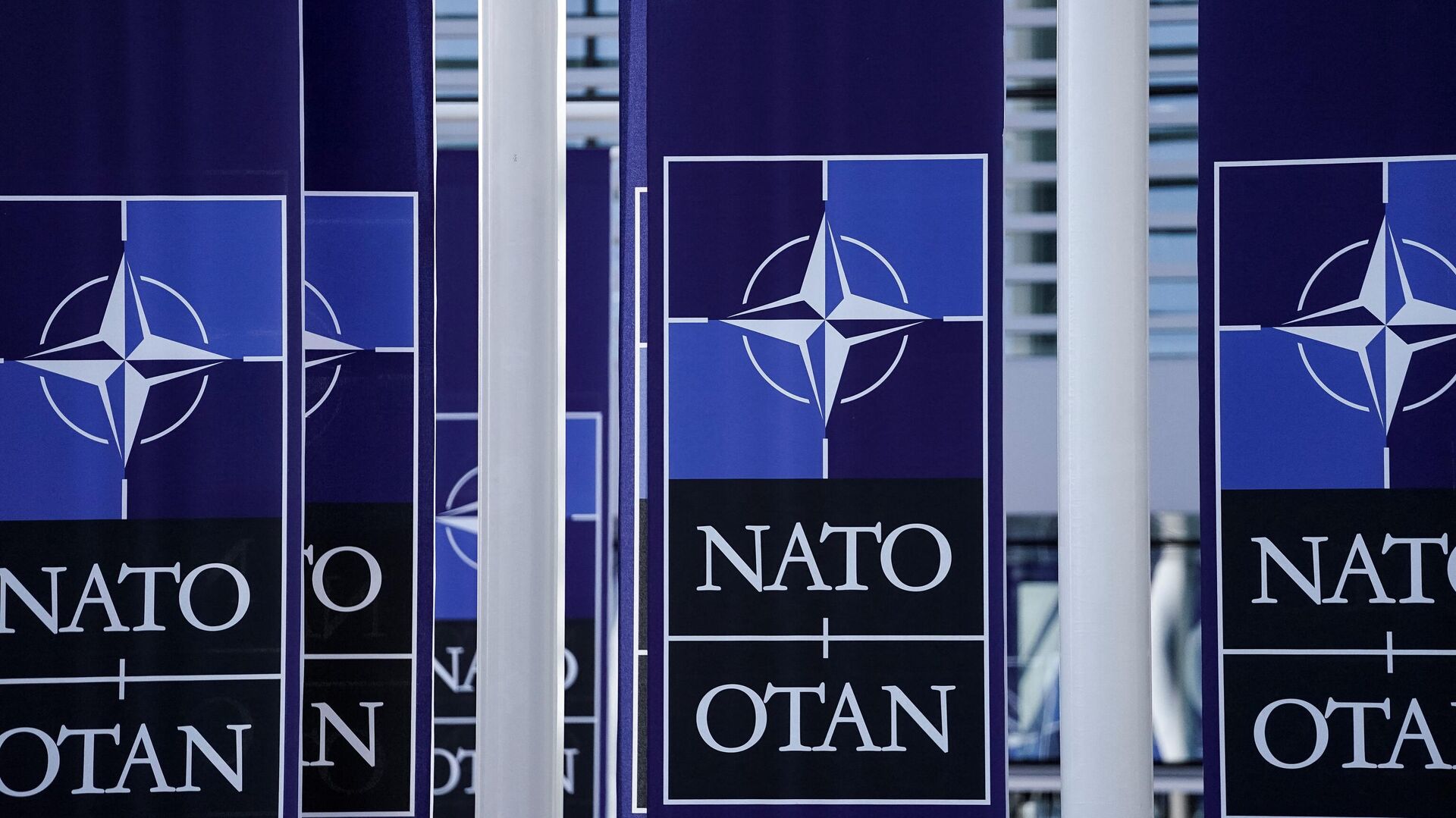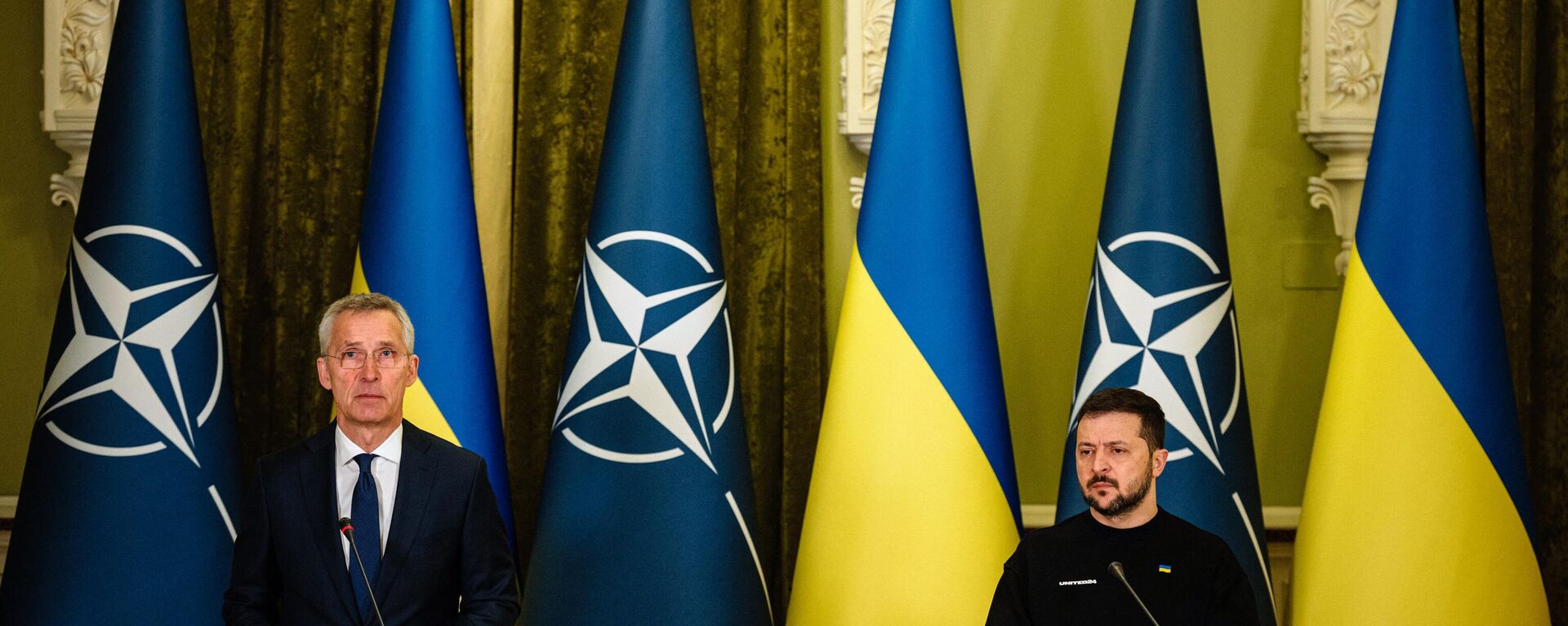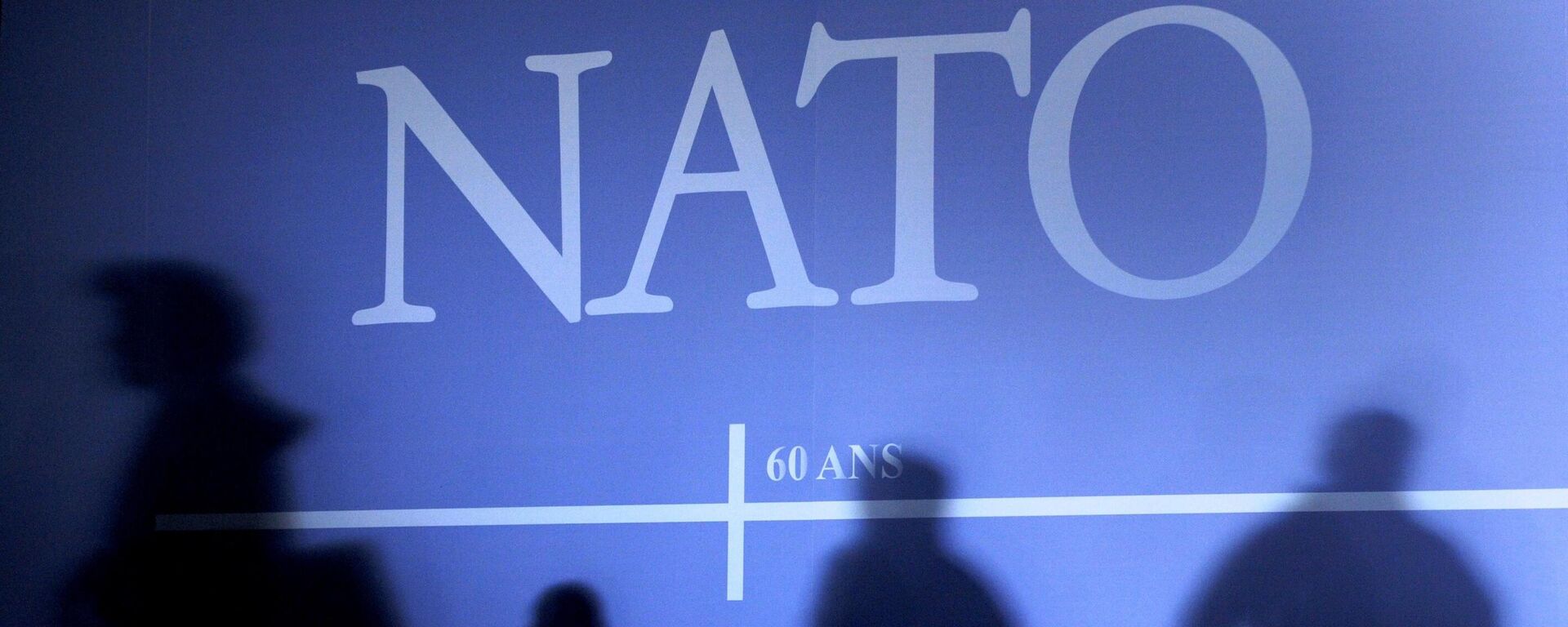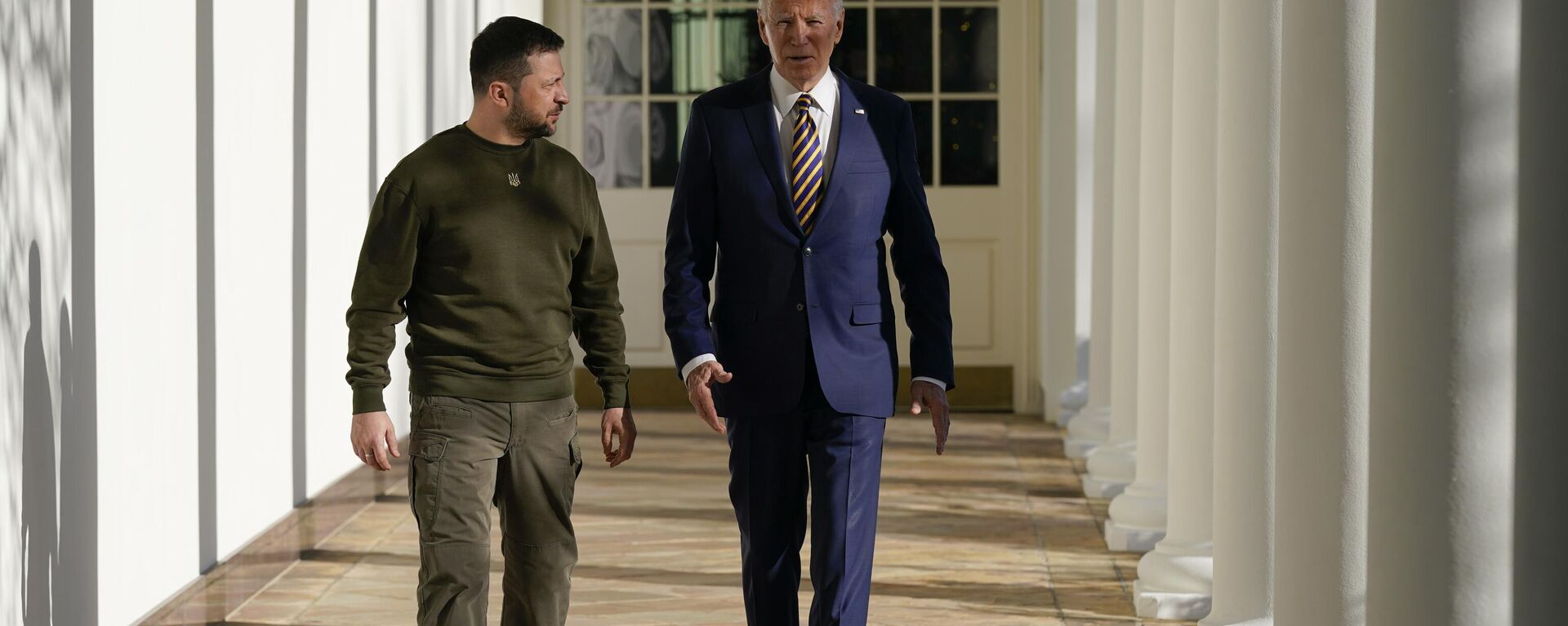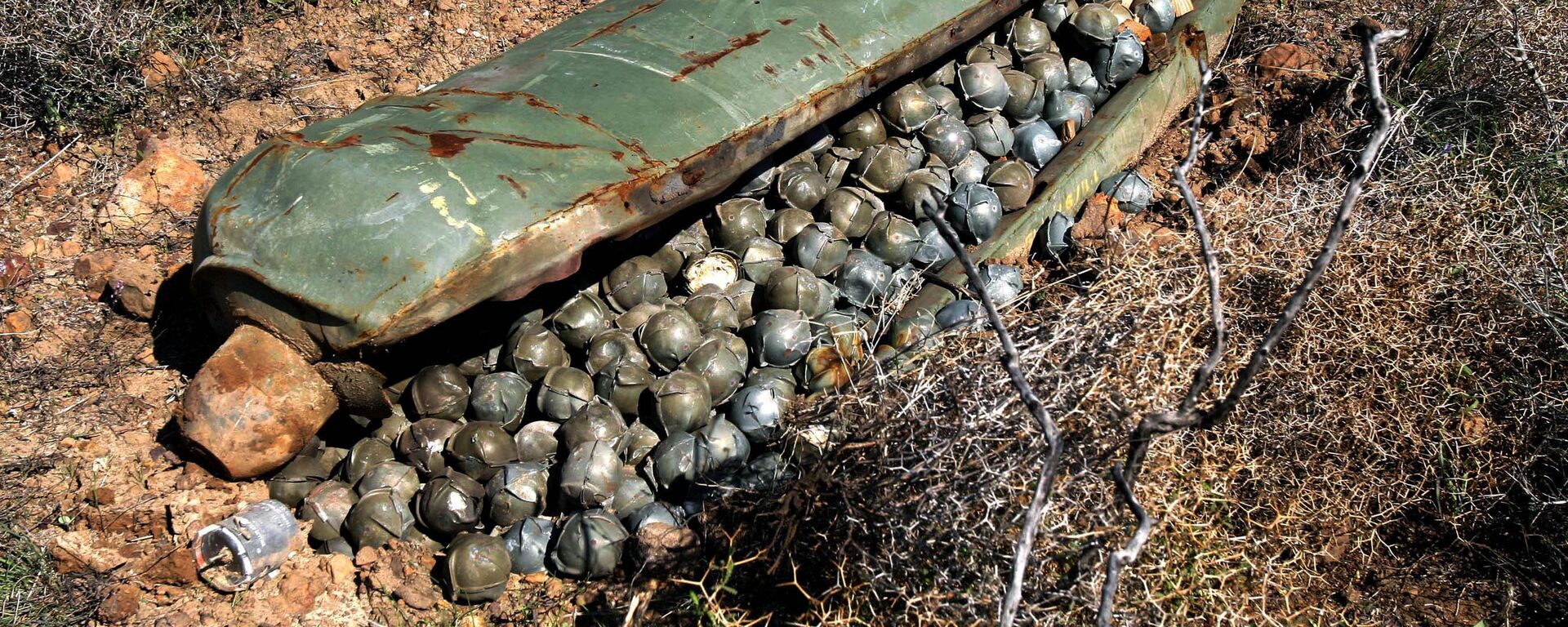https://sputnikglobe.com/20230711/nato-vilnius-summit-to-fall-short-of-ukraines-expectations-1111794929.html
Ukraine Joining NATO Increases Risks For Europe
Ukraine Joining NATO Increases Risks For Europe
Sputnik International
NATO summit is due to kick off July 11 in Vilnius, Lithuania, with a focus on Ukraine. Kiev is striving to join the bloc and receive a new portion of military aid from its Western patrons. How will NATO member states respond to Ukraine pleas?
2023-07-11T06:24+0000
2023-07-11T06:24+0000
2023-07-11T06:24+0000
analysis
ukraine
joe biden
vilnius
germany
jens stoltenberg
nato
european union (eu)
alternative fuer deutschland (afd)
europe
https://cdn1.img.sputnikglobe.com/img/07e6/0b/14/1104459445_0:161:3071:1888_1920x0_80_0_0_08dd4ddd5cc5a33620df2e6965654369.jpg
"US President [Joe] Biden has declared that Ukraine is not 'ripe' to join NATO," Paolo Raffone, a strategic analyst and director of the CIPI Foundation in Brussels, told Sputnik. "Some European allies, among others Germany, also doubt the readiness of Ukraine to join NATO. At the Vilnius NATO summit, it will not be decided on the membership of Ukraine in NATO. However, some sort of 'arrangement' in the form of a NATO-Ukraine council can be agreed upon. It is very clear that the US does not want any direct military confrontation with Russia – a position reaffirmed by Biden and [CIA Director William] Burns – the issue of Ukraine NATO membership is off the table."While encouraging the Kiev regime to continue fighting against Russia despite obvious failures in the beginning of Ukraine's well-advertised counteroffensive, the US and Germany are hesitant to make Ukraine a NATO member state. Instead, it is expected that the US, UK, France, and Germany will provide Kiev with some sort of security guarantees to ensure a regular delivery of Western military aid."I don’t think it’s ready for membership in NATO," President Joe Biden told CNN in an interview released on Sunday. The US president noted that joining NATO means meeting "all the qualifications, from democratization to a whole range of other issues."The Ukrainian leadership appears to be "pessimistic" about the forthcoming summit's agenda. Ukraine's Foreign Secretary Dmytro Kuleba lamented the fact that the West has yet to provide more clarity about the path for the country's membership in NATO.Another major issue is new potential weapons supplies to Ukraine. Both NATO Secretary General Jens Stoltenberg and EU foreign policy chief Josep Borrell have recently warned that the Ukraine conflict is causing Europe’s ammo stockpiles to rapidly run down."So far, EU governments are determined to support Ukraine even at the expense of their own military defense capabilities," Beck said. "Whether this is a problem, depends on the likelihood of being drawn into a military conflict soon. No one can answer this point with certainty. My own view is that Europe should not risk an escalation of the Ukraine conflict by stepping up arms supplies to Ukraine."Sputnik's interlocutors pointed out that European and US arms manufacturers directly benefit from the depletion of the EU's arms stockpiles since they "stand to gain billions from the general rise in military expenditure.""Probably, the various national military complexes see it as an opportunity to get rid of obsolete armaments and to purchase new ones from the US or increase national production," Raffone noted.As per Beck, "almost all EU politicians, notably [European] Commission President [Ursula] von der Leyen, have close ties with US business and finance."Although it is clear that the EU's deeper involvement in the Ukraine crisis is fraught with risks of general escalation of tensions, "critical voices, but also those who simply develop reasoning non-aligned with the imposed narrative, are marginalized and even openly become the object of tedious reprimands," Raffone remarked.In addition, Washington's decision to send deadly cluster munitions to Ukraine has triggered concerns within NATO, given that most of the bloc's member states are signatories to the 2008 Convention on Cluster Munitions (CCM). Only eight nations of the 31 NATO members have not ratified the treaty so far.Cluster munitions were banned due to the harm these inaccurate weapons inflict on civilians. Furthermore, unexploded submunitions continue to pose grave danger to civilians long after conflicts end.Spain's Defense Minister Margarita Robles has particularly criticized Washington for the decision to arm the Ukrainian military with cluster shells. "Spain, based on the firm commitment it has with Ukraine, also has a firm commitment that certain weapons and bombs cannot be delivered under any circumstances," Robles stated on July 8.All in all, the forthcoming Vilnius summit is due to become a litmus test for NATO's unity, per the US mainstream press. There are lots of issues concerning the bloc besides Ukraine and its desire to get more weapons and join the bloc's ranks. Thus, the alliance is struggling to make Sweden its 32nd member, as Turkiye continues to voice objections. Struck by inflation and economic slowdown, most NATO member states lag behind longstanding goals on annual military spending. To cap it off, the bloc has yet to reach a compromise on who will lead NATO as the next secretary general. This lack of unity has already forced an extension of Stoltenberg's term for an extra year.
https://sputnikglobe.com/20230709/nato-chief-says-unsure-about-zelenskys-participation-in-vilnius-summit-1111778965.html
https://sputnikglobe.com/20230707/nato-to-approve-multi-year-package-of-support-for-ukraine-in-vilnius-on-july-11-12---head-1111722365.html
https://sputnikglobe.com/20230708/kievs-promise-not-to-use-cluster-bombs-against-civilians-is-meaningless-heres-why-1111757453.html
https://sputnikglobe.com/20230628/us-record-of-cluster-bombs-rings-alarm-bells-for-ukrainians-1111528359.html
ukraine
vilnius
germany
Sputnik International
feedback@sputniknews.com
+74956456601
MIA „Rossiya Segodnya“
2023
News
en_EN
Sputnik International
feedback@sputniknews.com
+74956456601
MIA „Rossiya Segodnya“
Sputnik International
feedback@sputniknews.com
+74956456601
MIA „Rossiya Segodnya“
nato summit vilnius, ukraine nato membership, nato military aid to ukraine, european arms stockpiles, us military industrial complex, us cluster munitions, ukraine cluster munitions, nato weapons ukraine
nato summit vilnius, ukraine nato membership, nato military aid to ukraine, european arms stockpiles, us military industrial complex, us cluster munitions, ukraine cluster munitions, nato weapons ukraine
Ukraine Joining NATO Increases Risks For Europe
The NATO summit is due to kick off July 11 in Vilnius, Lithuania, with a focus on Ukraine. Kiev is striving to join the bloc and receive a new portion of military aid from its Western patrons. How will NATO member states respond to Ukraine pleas?
"US President [Joe] Biden has declared that Ukraine is not 'ripe' to join NATO," Paolo Raffone, a strategic analyst and director of the CIPI Foundation in Brussels, told Sputnik. "Some European allies, among others Germany, also doubt the readiness of Ukraine to join NATO. At the Vilnius NATO summit, it will not be decided on the membership of Ukraine in NATO. However, some sort of 'arrangement' in the form of a NATO-Ukraine council can be agreed upon. It is very clear that the US does not want any direct military confrontation with Russia – a position reaffirmed by Biden and [CIA Director William] Burns – the issue of Ukraine NATO membership is off the table."
While encouraging the Kiev regime to continue fighting against Russia despite obvious failures in the beginning of Ukraine's well-advertised counteroffensive, the US and Germany are hesitant to make Ukraine a NATO member state. Instead, it is expected that the US, UK, France, and Germany will provide Kiev with some sort of security guarantees to ensure a regular delivery of Western military aid.
"I don’t think it’s ready for membership in NATO," President Joe Biden told CNN in an interview released on Sunday. The US president noted that joining NATO means meeting "all the qualifications, from democratization to a whole range of other issues."
The Ukrainian leadership appears to be "pessimistic" about the forthcoming summit's agenda. Ukraine's Foreign Secretary Dmytro Kuleba lamented the fact that the West has yet to provide more clarity about the path for the country's membership in NATO.
"Ukraine joining NATO would increase, not reduce the risk of future military conflict with Russia (and possibly China)," Gunnar Beck, a member of the European Parliament for the Alternative for Germany (AfD) party, who is currently vice-president of the Identity and Democracy Group in the EU parliament, told Sputnik. "No sane person could desire such a war."
Another major issue is new potential weapons supplies to Ukraine. Both NATO Secretary General Jens Stoltenberg and EU foreign policy chief Josep Borrell have recently warned that the Ukraine conflict is causing Europe’s ammo stockpiles to rapidly run down.
"So far, EU governments are determined to support Ukraine even at the expense of their own military defense capabilities," Beck said. "Whether this is a problem, depends on the likelihood of being drawn into a military conflict soon. No one can answer this point with certainty. My own view is that Europe should not risk an escalation of the Ukraine conflict by stepping up arms supplies to Ukraine."
Sputnik's interlocutors pointed out that European and US arms manufacturers directly benefit from the depletion of the EU's arms stockpiles since they "stand to gain billions from the general rise in military expenditure."
"Probably, the various national military complexes see it as an opportunity to get rid of obsolete armaments and to purchase new ones from the US or increase national production," Raffone noted.
As per Beck, "almost all EU politicians, notably [European] Commission President [Ursula] von der Leyen, have close ties with US business and finance."
"I personally think that EU politicians naturally align with US interests because they personally profit from close commercial links with US donors and business interests," the MEP continued.
Although it is clear that the EU's deeper involvement in the Ukraine crisis is fraught with risks of general escalation of tensions, "critical voices, but also those who simply develop reasoning non-aligned with the imposed narrative, are marginalized and even openly become the object of tedious reprimands," Raffone remarked.
In addition, Washington's decision to send
deadly cluster munitions to Ukraine has triggered concerns within NATO, given that most of the bloc's member states are signatories to the 2008 Convention on Cluster Munitions (CCM). Only eight nations of the 31 NATO members have not ratified the treaty so far.
Cluster munitions were banned due to the harm these inaccurate weapons inflict on civilians. Furthermore, unexploded submunitions continue to pose grave danger to civilians long after conflicts end.
Spain's Defense Minister Margarita Robles has particularly criticized Washington for the decision to arm the Ukrainian military with cluster shells. "Spain, based on the firm commitment it has with Ukraine, also has a firm commitment that certain weapons and bombs cannot be delivered under any circumstances," Robles stated on July 8.
All in all, the forthcoming Vilnius summit is due to become a litmus test for NATO's unity, per the US mainstream press. There are lots of issues concerning the bloc besides Ukraine and its desire to get more weapons and join the bloc's ranks. Thus, the alliance is struggling to make Sweden its 32nd member, as
Turkiye continues to voice objections. Struck by
inflation and economic slowdown, most NATO member states lag behind longstanding goals on annual military spending. To cap it off, the bloc has yet to reach a compromise on who will lead NATO as the next secretary general. This lack of unity has already forced
an extension of Stoltenberg's term for an extra year.
